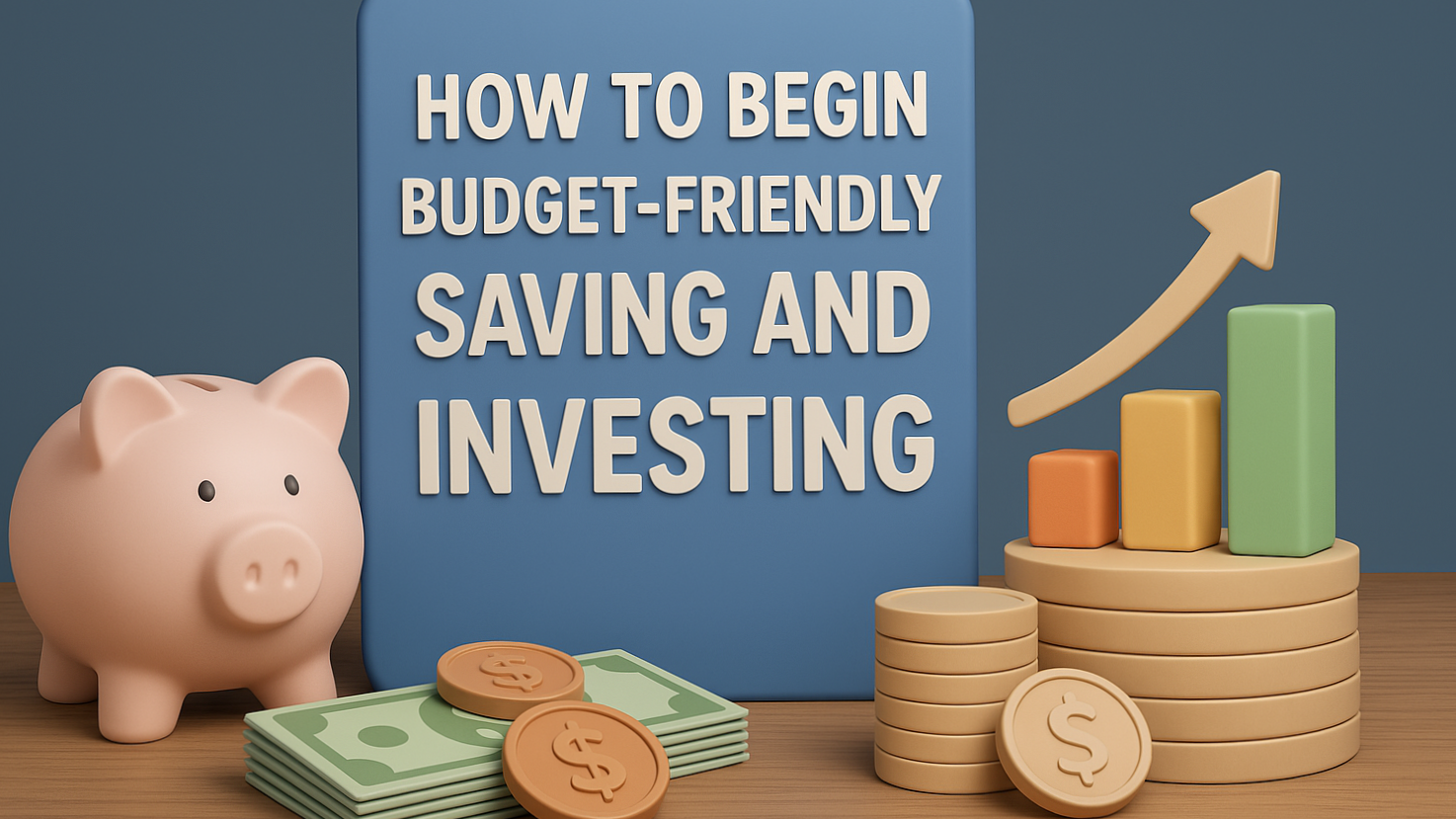
Many individuals believe that you should only begin saving money after you have a large income. But in reality, saving money is a habit rather than the outcome of having a lot of money. If you don't develop the habit of saving, you'll never feel financially secure in a place like the United States, where credit cards and fast money are common. The habit of saving is the foundation of wealth" is a philosophy that can change people's lives, not merely a saying. Your perspective on money is going to be permanently altered by this site. This isn't just a blog, so get ready. It's the awakening of your finances.
A large bank account is not the only indicator of wealth. Wealth equates to freedom, choice, and tranquillity. High income is frequently mistaken for wealth. A person is not always wealthy just because they make six figures. However, some people have excellent financial habits due to wise saving practices, even though they only make between $40K and $50K. Saving is the first step in the process of accumulating wealth. You begin to take charge of your life when you start saving, even if it's only $50 or $500 each month. That is the true strength of saving. You're prepared to take action when an emergency arises or a fantastic opportunity presents itself. Savings allow you to make choices, and wealth is really about power and confidence rather than stress.
Instant gratification and credit cards are commonplace in America. "Let me enjoy now; I'll worry about saving later" is a common belief. However, that "later" never actually materialises. You will always feel behind until you develop the practice of saving. The issue is that we consider conserving to be tedious or constrictive. We think that saving entails giving up enjoyment. In actuality, however, saving entails intelligence. You are planning for the future when you save. Changing your perspective from "spending makes me feel good" to "saving makes me feel powerful" is all that is required. And real transformation starts after that change. Consider this: you are already on your way to becoming a billionaire if you are in your 20s or 30s and regularly save merely $300 per month. One tiny habit—saving—makes all the difference.
Saving is a skill that requires practice, just like any other talent. Regular saving develops financial muscles, much like going to the gym does for physical muscles. It will take time for you to become a proficient saver. However, if you save a small amount every month, it will ultimately become second nature. Begin modestly—just $25 every week. Create an automatic transfer from your savings account to your checking account. Your brain associates saving with a positive emotion each time you are successful. You will eventually develop a deep affection for saving. Another piece of advice is to set up savings objectives such as "Investment Fund", "Vacation Fund", or "Emergency Fund". Saving for particular objectives makes it feel purposeful rather than monotonous. Keep in mind that saving money doesn't require wealth. To get wealthy, you must save.
Having an emergency reserve is actually the first step to accumulating wealth.It's a tiny sum that you save aside for unforeseen circumstances like losing your job, unanticipated medical expenses, or auto repairs. Since they haven't established this reserve, a large number of Americans rely on credit cards for unexpected expenses. Three to six months' worth of living expenditures should be your goal. This fund is created when things are going well, not in times of difficulty. It provides a sense of security and aids in debt avoidance. The first indication that you have begun to accumulate true wealth is the creation of an emergency fund. You will feel proud when you do it, and that is an invaluable emotion.
The majority of people believe that they should begin investing first. In reality, however, saving comes first. You can't make regular investments without savings. You may desire to purchase stocks or cryptocurrency one month, but you will have to withdraw your investments if you have an emergency and no money. That is gambling, not investing. When your funds are steady, you can begin making real investments. For this reason, you need to start by developing a saving habit. Start investing only after that. You'll have a strong foundation to begin investing in stocks, index funds, or Roth IRAs if you stick to this for two years. Before learning "how to save", don't jump right into "how to invest".
Coffee That Cost $5 Let's use Jake, a young professional, as an example. $150 a month, that is. That comes up to $1,800 over a year. It is $18,000 in ten years. Imagine now that he could have made between $40,000 and $50,000 if he had put that $18,000 at 8% interest in the S&P 500. That's what little savings over time can do. Spending money on coffee isn't the issue; rather, it's the failure to see the long-term costs of minor habits. You must begin to consider the long-term effects. You begin to take saving seriously when you learn that a $5 daily habit may cost you $50,000 in the future. This is about awareness, not about guilt.
Even in an emergency, on someone's birthday, or when bills are heavy, save it. This dedication gives you self-control. Your brain comes to believe that saving is a given. This is referred to as "pay yourself first" in the United States. Saving money is the first thing you do when you are paid; everything else comes later.
Don't wait until the end of the month to see "what's left". Prioritise saving before spending. It's a change in perspective. If you don't prioritise yourself, money will always be used on bad habits, brands, or expenses. Regular saving, however, makes your money work for you and your future.
One characteristic unites all successful American millionaires: they began saving early. They saved even when they had little money. because they realised that the most effective tools are time and compound interest. Even if you don't do anything more, if you start saving $200 a month now, that may increase to $200K to $300K in 30 years. "I'll work a little today so that I can live stress-free tomorrow," it states. Savings is an investment in the future, not only in cash but also in enjoyment, options, and tranquillity. Saving money helps you secure your future in addition to increasing your wealth. Quit believing that you only make this much money. Think, "I can save something no matter what I earn." Your life can be totally transformed by this one adjustment.
Final Thoughts & Request for Action.
Saving is about respecting oneself, not about making sacrifices. You are telling yourself that your future is important when you save.
You're persuading yourself that you're worthy of financial success, independence, and tranquillity. Go over each point in this blog post again. Allow the statement to become ingrained in your mind: "The foundation of wealth is the habit of saving." It's more than just a quote. You might adopt it as your new way of life. Begin now. Create a savings account. Put an auto-transfer in place. Just get started. Give this blog to someone who needs to change their financial situation. If you thought it was helpful, please hit the notification bell, subscribe, and leave a comment. We'll keep sending you more stuff that can change your life.

Just consider this: what do you do first each month when your pay cheque arrives? And you decide to ...
 Tajib Ali
Tajib Ali
Is Warren Buffett's well-known maxim, "Save before you spend," familiar to you? ...
 Tajib Ali
Tajib Ali
When it comes to money, your early twenties may be both the most thrilling and the riskiest time of ...
 Tajib Ali
Tajib Ali
Suppose you are in your twenties, have recently begun earning money, enjoy weekends, upgrade y...
 Tajib Ali
Tajib Ali
The most exciting time of your life is in your twenties. Unending dreams, road trips, parties, shopp...
 Tajib Ali
Tajib Ali
Imagine a world in which your money grows as you sleep, working for you instead of just sitting in a...
 Tajib Ali
Tajib Ali.png)
Imagine being able to ask the greatest investor of all time for his best financial advice. &nb...
 Tajib Ali
Tajib Ali
The Individual Who Made $100 Become $100 Billion. Imagine making a wealth of more than $100...
 Tajib Ali
Tajib Ali
Imagine starting to save and invest as a teenager, and when you wake up at 22, you have thousands of...
 Tajib Ali
Tajib Ali
Comments (0)
Leave a Comment